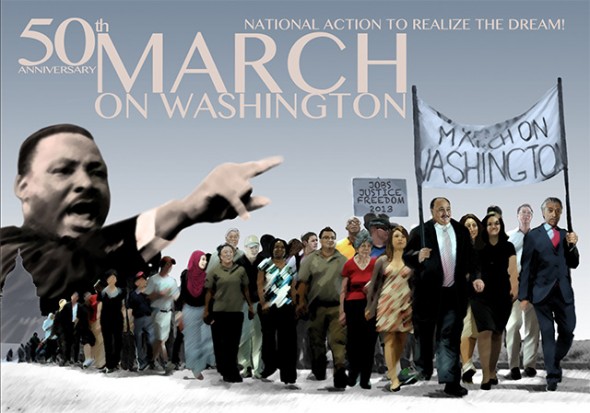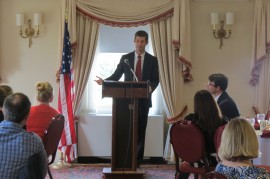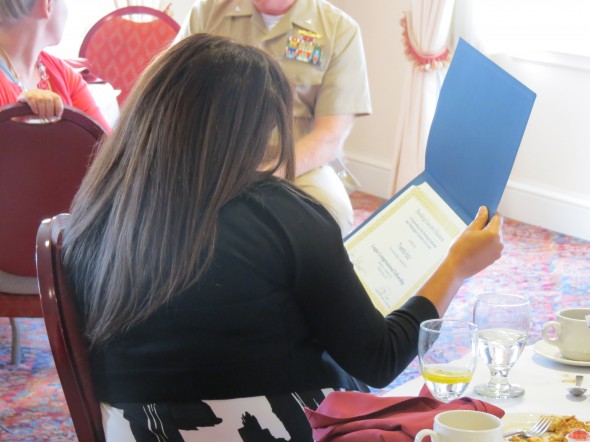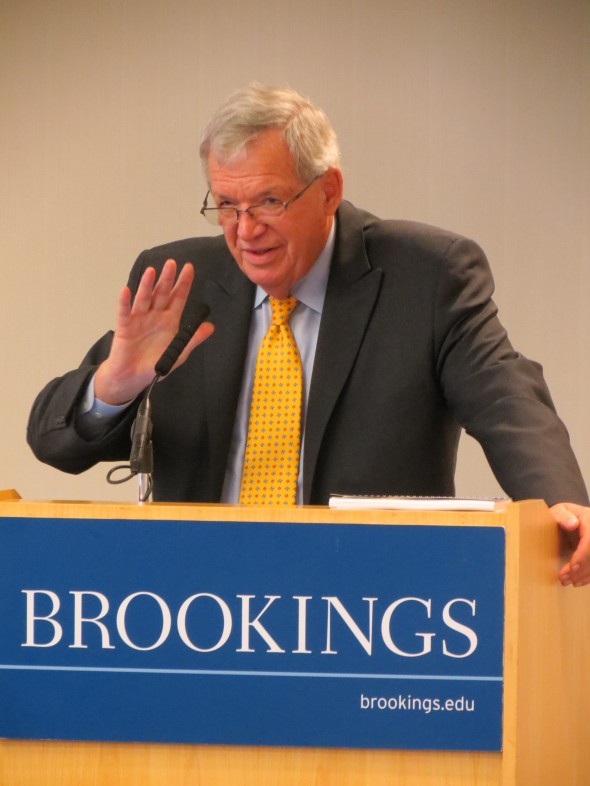 Our morning session on May 26 kicked off with Jason Gould and Richard Choi, two inspiring speakers from Carlton Field Jorden Burt. Carlton Fields is a leading provider of legal and consultation services, mostly to financial institutions, offering solutions to compliance systems and fighting for clients in court. They described the necessity of regulation and the degree of regulation that will protect the industry as well as avoid burdening the business. After various meetings with legislative representatives, we complete our tour in D.C. by hearing from the other side of the aisle. We saw their passion and commitment to speak for regulation objectives and represent their interests. Regulation and legislation together make the financial industry healthy and secure.
Our morning session on May 26 kicked off with Jason Gould and Richard Choi, two inspiring speakers from Carlton Field Jorden Burt. Carlton Fields is a leading provider of legal and consultation services, mostly to financial institutions, offering solutions to compliance systems and fighting for clients in court. They described the necessity of regulation and the degree of regulation that will protect the industry as well as avoid burdening the business. After various meetings with legislative representatives, we complete our tour in D.C. by hearing from the other side of the aisle. We saw their passion and commitment to speak for regulation objectives and represent their interests. Regulation and legislation together make the financial industry healthy and secure.
Next, we departed for Capitol Hill and met with Mr. Ron Klein, a former U.S. Congressman for Florida in the House of Representatives. He served on the full Financial Services Committee, and was also a member of the subcommittee on capital markets, insurance, and government-sponsored enterprises, in addition to the subcommittee on financial institutions and consumer credit. With all this experience, he shared with us his opinions on the mortgage industry, Sarbanes Oxley, the 2007-2009 financial crisis, Fintech, government regulation, student loans, and even his thoughts on the TV series House of Cards.

During the speech, we heard the buzzers from the clock on the wall several times. Mr. Klein explained to us that if there are 5 bells and 5 lights on the left, there is a five-minute vote taking place. If there are 3 bells, a pause, and 5 more bells, there is a 15-minute quorum call immediately after the five-minute recorded vote.
After a short lunch break, we headed to International Monetary Fund (IMF) for a meeting to learn about its history and current role. The speaker began by sharing with us the history of the IMF, and providing insight into the IMF’s roots and its founders. Basically, it is an international central bank which promotes financial stability and cooperation between countries. We have come to appreciate its role as an international corporation. In the Q&A session, one student asked about how to determine if a country’s currency is undervalued or overvalued. The speaker spent a good deal of time answering the question, solving the doubt for students.
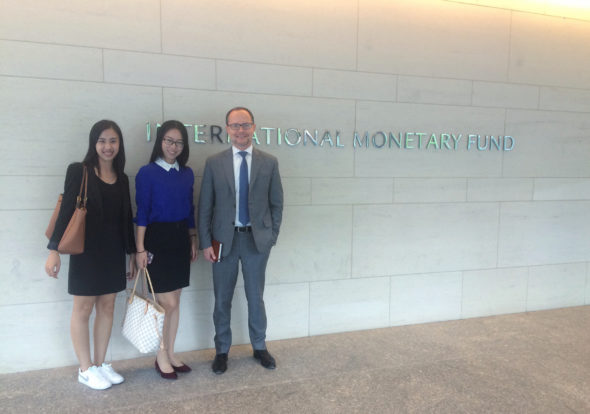
After leaving the IMF, we finally got the chance to explore the mysterious and globally renowned Brookings Institute. We then came back to the conference room and learned from Mr. Paul Gumagay, Senior Special Counsel, Office of International Affairs at the Securities and Exchange Commission (SEC).

Mr. Gumagay’s speech was very comprehensive. He started from the very beginning of the SEC and outlined the history and structure of the organization. His presentation was also full of stories from the finance world, which helped us better understand the significance of financial regulations.
In the Q&A session, Mr. Gumagay answered questions concerning regulation of crowdfunding, lending clubs, and other kinds of financial technology firms. Combining this with what we’ve already learned about Fintech and regulation, we now have a more thorough understanding of the concept of Fintech, and how people can better utilize it to make the financial world more efficient and accessible.
Guest Bloggers: Qu (Ashley) Chen, Jialu (Lily) Zhu, Zhiru (Shirley) Lin, Mengchuan (Kitty) Wang (GMF 2016)
This is a series of blogs chronicling the experiences of 41 Global Master of Finance (GMF) dual degree students during their two week immersion course in New York and Washington, DC. Each blog will be written by a small subset of students during their experience.




 Our morning session on May 26 kicked off with Jason Gould and Richard Choi, two inspiring speakers from Carlton Field Jorden Burt. Carlton Fields is a leading provider of legal and consultation services, mostly to financial institutions, offering solutions to compliance systems and fighting for clients in court. They described the necessity of regulation and the degree of regulation that will protect the industry as well as avoid burdening the business. After various meetings with legislative representatives, we complete our tour in D.C. by hearing from the other side of the aisle. We saw their passion and commitment to speak for regulation objectives and represent their interests. Regulation and legislation together make the financial industry healthy and secure.
Our morning session on May 26 kicked off with Jason Gould and Richard Choi, two inspiring speakers from Carlton Field Jorden Burt. Carlton Fields is a leading provider of legal and consultation services, mostly to financial institutions, offering solutions to compliance systems and fighting for clients in court. They described the necessity of regulation and the degree of regulation that will protect the industry as well as avoid burdening the business. After various meetings with legislative representatives, we complete our tour in D.C. by hearing from the other side of the aisle. We saw their passion and commitment to speak for regulation objectives and represent their interests. Regulation and legislation together make the financial industry healthy and secure.



